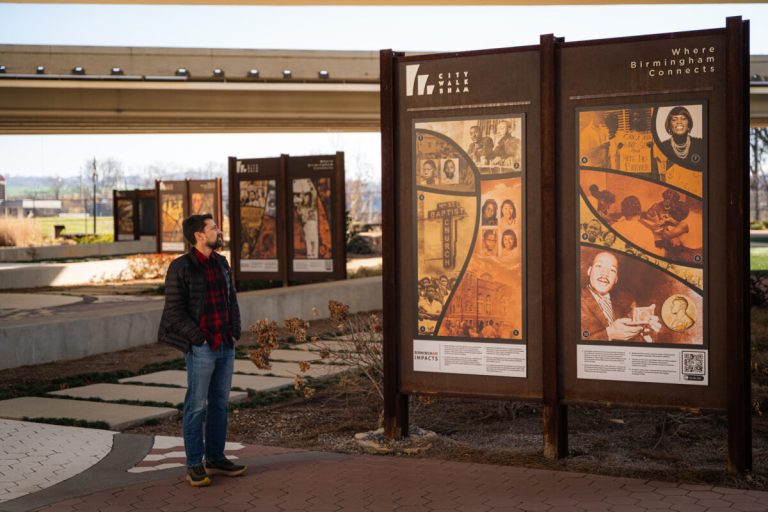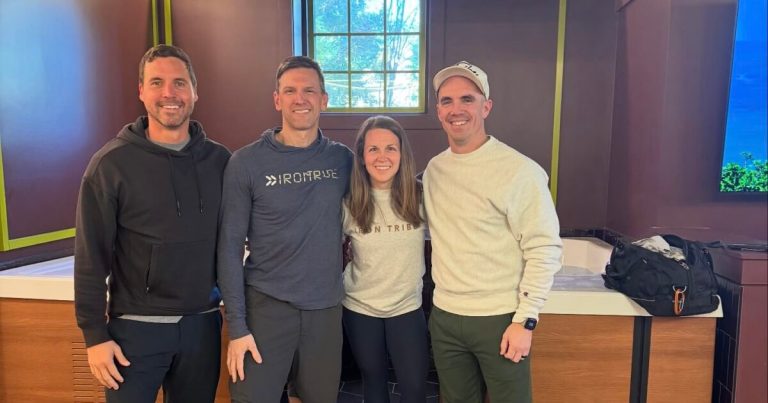Get an inside look at the technology fighting lung cancer in Birmingham
Reading time: 5 minutes
Sponsored

Did you know Birmingham has some of the most advanced technologies in the world when it comes to lung cancer diagnosis and treatment? November is Lung Cancer Awareness Month, and we caught up with a local expert to learn more about how he and his team are saving lives, one breath at a time.
Lung Cancer at a Glance

While it may not be the most talked-about, lung cancer is the number one cancer killer of women and men in the United States. More than 90 percent of people diagnosed with lung cancer do not survive the disease.
This is due to several factors, one of the main ones being it’s generally found at an advanced stage. We’ve all heard that early detection is key when it comes to all kinds of cancer, and that’s certainly true here.
However, diagnostic options currently available for lung cancer tend to have limitations in accuracy, safety or invasiveness. Princeton Baptist is working to change that, right here in Birmingham.
Meet the Surgeon

Douglas J. Minnich, MD, is a board-certified thoracic surgeon at Princeton Baptist Medical Center. If that’s not a specialty you recognize, you’re not alone. Dr. Minnich is one of only four thoracic surgeons in the state of Alabama.
By his description, thoracic surgery involves, “Treating benign and malignant diseases of the lung, esophagus, trachea and chest wall.” Basically, anything that’s essential to breathing in and out.
Dr. Minnich has played a big role in the development of minimally invasive technologies in his field. Unlike something like skin cancer or breast cancer, we can’t detect lung cancer with our own senses.
In the past, checking for lung cancer could be invasive, inaccurate or even potentially dangerous—in some cases leading to side effects such as pneumothorax (collapsed lung) and hemorrhage.
Dr. Minnich performed the first electromagnetic navigational bronchoscopy (ENB) in the state of Alabama, which essentially means getting a good look inside your lungs without any incisions. He’s since developed one of the highest experience levels with this technology in the world.
Here’s what it means for you.
Diagnosis + Treatment in Birmingham

Princeton Baptist Medical Center was one of the first institutions in the world to play host to a robotic bronchoscopy machine. That may not sound like a big deal, but this was a huge win for Alabama residents at risk for lung cancer.
The goal of using the robot is to enable earlier and more accurate diagnosis of small and hard-to-reach nodules in the lung (nodules that could be cancerous).
Even now, there are less than 50 of these machines worldwide, and one of them is in use right here.
“Lung cancer is the leading cause of cancer deaths worldwide, in part because it has no symptoms in its early stages.
Because the (platform) provides improved reach, vision and control for bronchoscopic procedures, it holds potential to help physicians to make a diagnosis earlier.”
Mike Neuendorf, CEO, Princeton Baptist Medical Center
Think of a robotic bronchoscopy this way: if you’re inspecting a house, it’s much more effective to go inside and check things out for yourself than it is to take some photos and see what you can discern.
Sure, you might notice a big thing, but you also might miss a lot of the small stuff. That’s the difference between the traditional method of lung cancer detection (chest X-rays) and what Dr. Minnich does at Princeton.
Who’s at Risk?

Early-stage lung cancer has no symptoms, which might sound scary. However, there are certain factors that put someone at a higher risk:
“If you’re a smoker, quit smoking. If you’re not a smoker, don’t start.”
Dr. Douglas Minnich, thoracic surgeon, Princeton Baptist Medical Center
Dr. Minnich recommends that current and former smokers speak to their primary care physicians about whether or not they’re a candidate for lung cancer screening.
High-risk patients generally start with a low-dose CT scan. The goal is to find any cancerous growths as early as possible in order to keep the maximum amount of treatment options open. Learn more about screenings here.
The American Lung Association has a few tips for keeping your lungs as healthy as possible:
- Don’t smoke.
- Avoid exposure to indoor pollutants that can damage your lungs.
- Minimize exposure to outdoor air pollution.
- Prevent infection.
- Get regular check-ups.
- Exercise.
Get more tips on healthy living from the experts at Brookwood Baptist Health right here.
Sponsored by:




